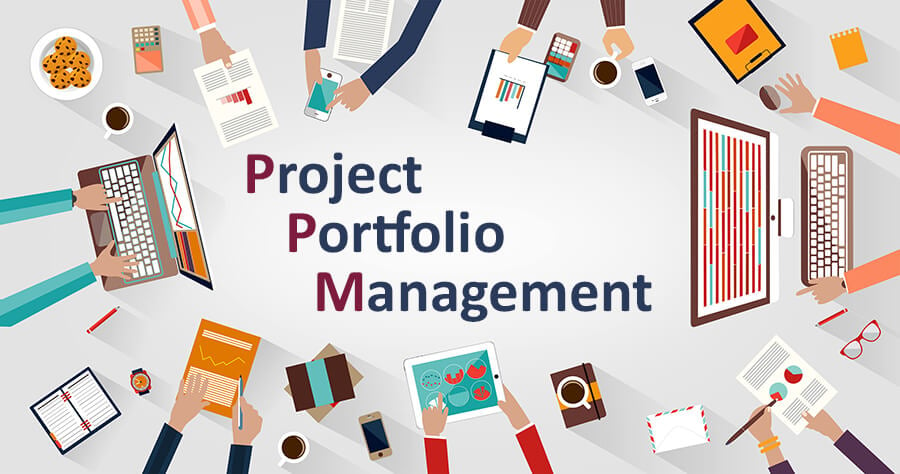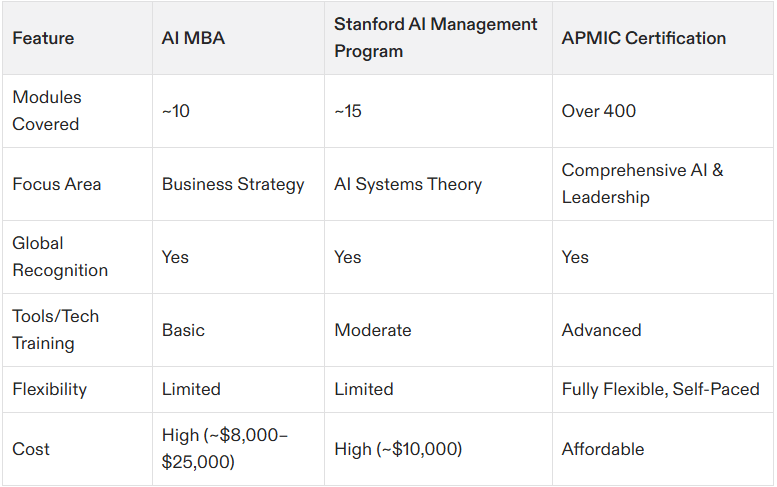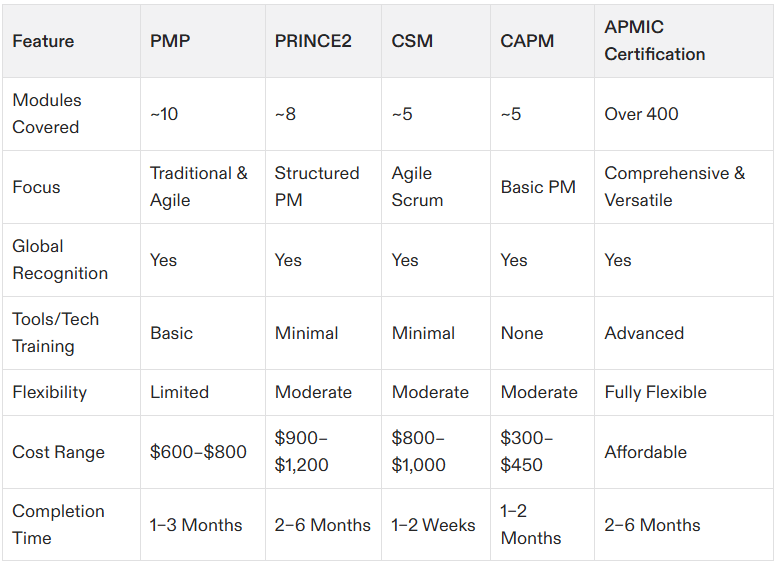Table of Contents
- The Ultimate Guide to PPM Project Management Certification in 2025: Level Up Your Career!
- What Exactly is PPM Project Management Certification?
- Why Pursue a PPM Project Management Certification in 2025?
- How to Get Your PPM Project Management Certification in 2025: A Step-by-Step Guide
- Key Skills and Tools Offered by the PPM Certification
- Diving Deeper: 10 Less Commonly Known Facts About PPM Project Management Certification
- Final Thoughts: Invest in Your Future and Redefine What's Possible
- FAQs
Alright, buckle up buttercups! Ready to ditch the project-by-project grind and leap into the world of strategic mastery? If you're nodding along, then a PPM Project Management Certification might just be the rocket fuel your career needs. Let's dive deep into the ultimate guide to PPM certification in 2025 – packed with juicy details, insider tips, and everything you need to dominate the project portfolio landscape.
The Ultimate Guide to PPM Project Management Certification in 2025: Level Up Your Career!
Project Portfolio Management (PPM) isn't just a buzzword anymore; it's the strategic heartbeat of every successful organization in today's hyper-competitive business environment. As we navigate the complexities of 2025, companies need leaders who can align project investments with overarching business goals, ensuring maximum value delivery. That's where the PPM Project Management Certification comes in.
This certification empowers professionals like you to master the essential skills needed to make high-impact decisions, optimize resources, and drive organizational success. Whether you're a seasoned project manager aiming for a leadership role or a driven professional seeking to enhance your project management expertise, the PPM certification is your golden ticket.
This comprehensive guide will walk you through the ins and outs of PPM Project Management Certification, including its key benefits, career impact, how to get certified, and much more. Let's embark on this journey together!
What Exactly is PPM Project Management Certification?
The PPM Project Management Certification is a globally recognized credential that focuses on managing portfolios of projects to achieve strategic objectives. Unlike traditional project management certifications, which focus on individual projects, PPM emphasizes the bigger picture—managing multiple projects together to align with organizational goals.
Think of it as moving from being a skilled chess player (managing one project) to a grand strategist capable of orchestrating multiple chess games simultaneously to achieve a decisive victory.
This certification provides advanced skills and tools used for portfolio analysis, resource optimization, risk mitigation, and strategic project selection. With a PPM certification, professionals are equipped to bridge the gap between project execution and business strategy effectively.
The certification goes beyond the tactical execution of individual projects. It emphasizes the strategic alignment of project portfolios with organizational objectives. In today's dynamic business world, organizations are constantly seeking ways to maximize their ROI from project investments. A PPM certification demonstrates your ability to identify and select projects that align with strategic priorities, optimize resource allocation, and mitigate risks across the portfolio.
Why Pursue a PPM Project Management Certification in 2025?
Earning a PPM Project Management Certification is more than just adding another line to your resume; it's an investment in your career that delivers significant returns. Here's how it adds value to your professional life in 2025:
1. Strategic Decision-Making Prowess
In today's fast-paced business world, strategic decision-making is critical for success. PPM-certified professionals are adept at understanding the broader organizational strategy and aligning project goals to meet it. You’ll learn to identify high-value projects, allocate resources strategically, and ensure the portfolio delivers maximum ROI.
Imagine being the go-to person who can confidently guide investment decisions, ensuring that every project contributes to the company's overarching mission.
2. Enhanced Leadership Opportunities
The PPM certification positions you as a leader who can manage complexity, make high-impact decisions, and drive organizational success.
This certification places you ahead of the curve for leadership roles such as Portfolio Manager, Program Director, or Head of Project Management Office (PMO). Employers seek PPM-certified individuals for their ability to manage complexity and make high-impact decisions.
3. Mastery of Cutting-Edge Tools
The PPM certification provides hands-on training with popular portfolio management tools, such as MS Project Server, Primavera, and bespoke portfolio management software. These platforms form the backbone of efficient PPM processes.
Training for this certification often involves learning popular portfolio management tools, such as MS Project Server, Primavera, or bespoke portfolio management software. These platforms form the backbone of efficient PPM processes.
4. Cross-Industry Relevance
Project portfolio management is a critical function across industries, from IT and finance to healthcare and manufacturing. The certification equips you with skills that are adaptable across various domains, enhancing your marketability as a project professional.
The skills and knowledge gained through PPM certification are transferable across industries. Whether you're in healthcare, finance, technology, or manufacturing, the principles of strategic alignment, resource optimization, and risk mitigation remain the same.
5. Boosted Earning Potential
According to recent industry surveys, PPM-certified professionals earn significantly more than their non-certified counterparts. Your ability to manage complex portfolios, make strategic decisions, and deliver high-value outcomes makes you a valuable asset to any organization.
6. Improved Project Success Rates
With a PPM certification, you'll be equipped to select the right projects, allocate resources effectively, and mitigate risks proactively. This leads to higher project success rates, which translates to increased revenue, improved customer satisfaction, and enhanced brand reputation.
7. Enhanced Credibility and Recognition
The PPM certification is a globally recognized credential that demonstrates your expertise in project portfolio management. Holding this certification enhances your credibility among peers, stakeholders, and employers.
8. Continuous Professional Development
Obtaining a PPM certification is not the end of your professional development journey; it's just the beginning. The certification requires ongoing professional development activities to maintain your credentials, ensuring that you stay up-to-date with the latest trends, tools, and techniques in project portfolio management.
How to Get Your PPM Project Management Certification in 2025: A Step-by-Step Guide
Securing a PPM Project Management Certification requires dedication and a structured approach. Here’s a step-by-step guide to help you get started:
1. Assess Your Eligibility
While specific requirements vary depending on the certifying body, most PPM certifications require a background in project or portfolio management. Management experience is typically advantageous.
2. Choose the Right Certification Program
Research the various PPM certification programs available and choose one that aligns with your career goals, industry, and experience level. Consider factors such as the certification's reputation, curriculum, prerequisites, cost, and renewal requirements.
Study the official course materials, which often include case studies, theoretical frameworks, and tool-based training. Explore the top project management books to boost your career
3. Understand the Curriculum
Study the official course materials, which often include case studies, theoretical frameworks, and tool-based training.
Familiarize yourself with the certification's syllabus and learning objectives. This will help you identify your strengths and weaknesses and tailor your study plan accordingly.
4. Enroll in a Training Program
Attend instructor-led sessions or online training programs from accredited providers to ensure holistic preparation.
Consider enrolling in a training program offered by an accredited provider. These programs provide structured learning, expert guidance, and opportunities for peer interaction.
5. Practice with Portfolio Scenarios
Case study-focused scenarios and mock exams help you develop decision-making skills essential for the final certification exam.
Practice with case studies, simulations, and mock exams to hone your portfolio management skills and prepare for the certification exam.
6. Pass the Final Exam
Once prepared, schedule and take your PPM certification exam. Post-certification, you’ll become part of an elite group of professionals adept at managing complex portfolios.
Prepare thoroughly for the certification exam by reviewing the course materials, practicing with sample questions, and taking mock exams.
7. Maintain Your Certification
Once you've earned your PPM certification, you'll need to maintain it by earning professional development units (PDUs) or continuing education credits (CEUs) and renewing your certification periodically.
Research the various PPM certification programs available and choose one that aligns with your career goals, industry, and experience level. Learn about how much the Google Project Management Certification costs
Key Skills and Tools Offered by the PPM Certification
The PPM certification equips professionals with a robust skill set and specialized tools tailored to portfolio management. Here’s a closer look at some of the core competencies it provides and their real-world benefits:
Portfolio Analysis
This skill allows professionals to assess the collective value of projects within a portfolio. Through well-structured portfolio analysis, you’ll be able to evaluate which initiatives align best with strategic goals and allocate resources to initiatives that promise the highest ROI.
Resource Optimization
Organizations often face constraints in terms of budgets, talent, and technology. The PPM certification provides training to optimize these resources across multiple projects, ensuring every asset is utilized effectively without overloading teams or jeopardizing timelines.
Risk Mitigation
Managing risks at the portfolio level requires a bird’s-eye view. Through advanced risk management techniques, PPM-certified professionals are equipped to identify threats that could affect one or more projects in the portfolio. By proactively handling these risks, you ensure greater stability and fewer disruptions across the board.
Strategic Project Selection
One of the standout features of the PPM certification is its focus on honing the ability to choose the right projects based on an organization’s strategic priorities. This ensures that business goals drive project selection rather than ad-hoc decisions, ultimately leading to measurable success.
Diving Deeper: 10 Less Commonly Known Facts About PPM Project Management Certification
The Rise of AI in PPM: "In 2025, AI-powered tools are increasingly integrated into PPM software, assisting with predictive analysis, resource allocation, and risk assessment" – AI in Project Portfolio Management - Wikipedia
Blockchain for Project Transparency: "Some innovative organizations are exploring blockchain technology to enhance transparency and accountability in project portfolio management" – Blockchain Technology - Wikipedia
Gamification in PPM Training: "To boost engagement and knowledge retention, many PPM certification programs now incorporate gamified learning experiences" – Gamification - Wikipedia
Emphasis on Sustainability: "In response to growing environmental concerns, PPM methodologies are evolving to incorporate sustainability metrics and considerations" – Sustainability - Wikipedia
Integration with Agile Frameworks: "The PPM certification now emphasizes the integration of Agile methodologies into portfolio management, enabling organizations to adapt quickly to changing market conditions" – Agile Project Management - Wikipedia
Focus on Soft Skills: "Beyond technical skills, the PPM certification emphasizes the importance of soft skills such as communication, leadership, and stakeholder management" – Soft Skills - Wikipedia
Customized Certification Paths: "Some certification bodies offer customized learning paths that cater to specific industry needs or career goals" – Certification - Wikipedia
Micro-credentials in PPM: "To recognize specialized skills and knowledge, micro-credentials in areas such as risk management, resource optimization, and strategic alignment are gaining popularity" – Micro-credential - Wikipedia
Emphasis on Data Analytics: "The PPM certification now includes training in data analytics techniques to enable professionals to make data-driven decisions and optimize portfolio performance" – Data Analytics - Wikipedia
Ethical Considerations: "With the increasing use of technology in PPM, the certification addresses ethical considerations such as data privacy, bias, and transparency" – Ethics in Technology - Wikipedia
Final Thoughts: Invest in Your Future and Redefine What's Possible
Earning a PPM Project Management Certification equips you to excel as a strategic leader by bridging the gap between project execution and business goals. This certification is a testament to your ability to manage portfolios of projects, align investments with organizational priorities, and deliver high-value outcomes.
By pairing your certification with complementary programs like the APMIC Certification, offering 400+ modules, you can expand your expertise further. Together, these certifications prepare you for leadership roles in today’s fast-paced business world. And speaking of taking your career to the next level, be sure to check out our top-notch PMP Certification Prep Course at APMIC! We've got everything you need to ace the exam and become a certified project management rockstar!
FAQs
What is PPM Project Management Certification?
It is a certification that focuses on managing portfolios of projects to ensure alignment with organizational objectives and maximize value delivery.
Who should pursue this certification?
Current project managers, program managers, PMO heads, and senior professionals looking to enhance their strategic portfolio management skills should consider this certification.
How long does it take to earn the certification?
Most PPM certifications require between 4–6 months of preparation, depending on your background and the program you choose.
What is the cost involved?
Costs for the certification exam range between $900–$1,500, with additional expenses for training programs if needed.
How does it compare to APMIC Certification?
While PPM focuses primarily on portfolio management, APMIC Certification spans over 400 modules covering diverse project management disciplines, including Agile frameworks and crisis management strategies. Combining the two enhances your expertise and adaptability.
What are the prerequisites for PPM certification?
While specific prerequisites vary depending on the certifying body, most PPM certifications require a background in project or portfolio management and a certain number of years of experience in a related field.
How do I choose the right PPM certification program?
Research the various PPM certification programs available and choose one that aligns with your career goals, industry, and experience level. Consider factors such as the certification's reputation, curriculum, prerequisites, cost, and renewal requirements.
How can I prepare for the PPM certification exam?
Prepare thoroughly for the certification exam by reviewing the course materials, practicing with sample questions, and taking mock exams. Consider enrolling in a training program offered by an accredited provider.









